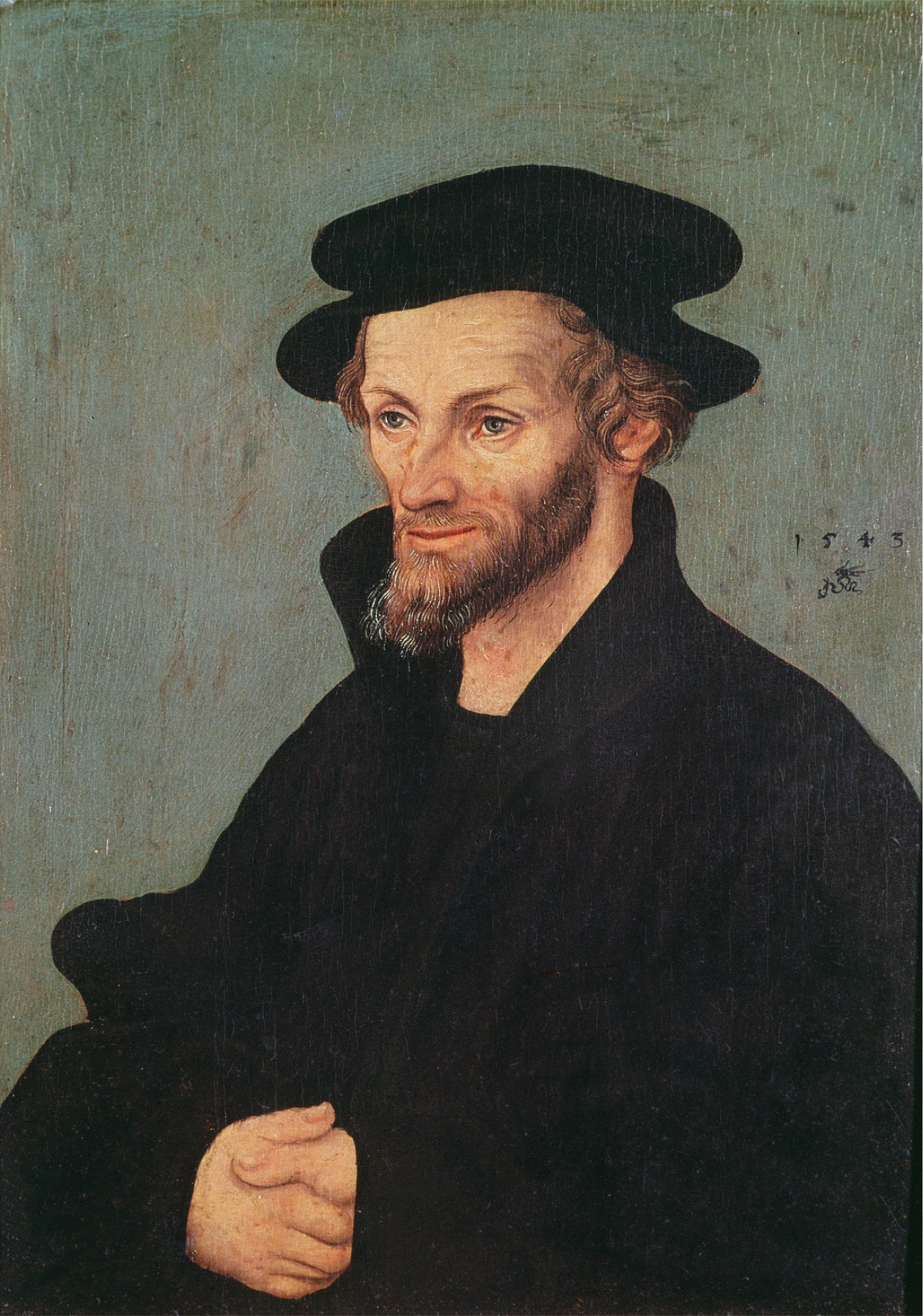Philippe Mélanchthon: Citations en anglais
Source: Praise of Eloquence (1523), p. 63
Source: Praise of Eloquence (1523), p. 61
Source: Praise of Eloquence (1523), p. 66
“The shadow does not follow the body more closely than eloquence accompanies sagacity.”
Source: Praise of Eloquence (1523), p. 65
Source: Praise of Eloquence (1523), p. 66
Source: Praise of Eloquence (1523), p. 64
“I have received blows from him.”
Ab ipso colaphos acceperim or Ab ipso colaphos accepi.
Letter to Vito Theodoro (Veit Dietrich (1506-1549)), February 23, 1544 wherein Melanchthon complains of having been stuck (colaphos) by Luther. In Corpus Reformatorum, 1838, volume 5, p. 322. http://books.google.com/books?id=zioMAAAAIAAJ&pg=PR175&dq=%22ab+ipso+colaphos+acceperim%22&hl=en&ei=4Y4qTIu0N5CInQfS2aXWDg&sa=X&oi=book_result&ct=result&resnum=10&ved=0CFYQ6AEwCQ#v=onepage&q=%22ab%20ipso%20colaphos%20acceperim%22&f=false
See also The Mystery of Iniquity Revealed, Or, A Contrast Between the Lives of Some Anti-Christian Popes and the Godly Reformers: with the Essence of Protestantism, London: Richardson and Son, 1849, p. 190. http://books.google.com/books?id=ZloEAAAAQAAJ&pg=PA190&dq=colaphos+%22I+have+received+blows+from+him%22&hl=en&ei=1IsqTIHLFcPknAfYr_jVDg&sa=X&oi=book_result&ct=result&resnum=1&ved=0CCcQ6AEwAA#v=onepage&q=colaphos%20%22I%20have%20received%20blows%20from%20him%22&f=false
“But I hope that by the decision and authority of wise princes that sometime devout and learned men from the churches of other nations and of ours may be summoned together to deliberate about all the controversies and that there be handed down to posterity one harmonious, true, and clear form of doctrine, without any ambiguity. Meanwhile, as far as possible, let us encourage the union of our churches with measured advice.”
Opto autem, ut sapientum Principum consilio, et autoritate aliquando, et ex aliarum gentium Ecclesiis, et nostris, pii et eruditi viri convocentur, ut de omnibus controversiis deliberetur, et una consentiens forma doctrinae vera et perspicua, sine ulla ambiguitate posteritati tradatur.
Letter to Elector Friedrich of the Palatinate, November 1, 1559. In The Peter Martyr Library: Dialogue on the Two Natures in Christ, Pietro Martire Vermigli, John Patrick Donnelly, trans. & ed, Thomas Jefferson University Press, 1995, ISBN 0940474336 ISBN 978-0940474338, vol. 2, p. 167. http://books.google.com/books?id=dkTspOwegEsC&pg=PA167&dq=%22true,+and+clear+form+of+doctrine,+++without+any+ambiguity%22&hl=en&ei=2XUqTJCjGY2inQf_q93VDg&sa=X&oi=book_result&ct=result&resnum=2&ved=0CC0Q6AEwAQ#v=onepage&q=%22true%2C%20and%20clear%20form%20of%20doctrine%2C%20%20%20without%20any%20ambiguity%22&f=false. Primary source: Corpus Reformatorum, 1842, Volume 9, p. 961. http://books.google.com/books?id=mMk8AAAAYAAJ&pg=PA1559-IA6&dq=%22una+consentiens+forma+doctrinae+vera+et+perspicua%22&hl=en&ei=Wf4jTMOpIML78AaryfzcBQ&sa=X&oi=book_result&ct=result&resnum=1&ved=0CCgQ6AEwAA#v=onepage&q=%22una%20consentiens%20forma%20doctrinae%20vera%20et%20perspicua%22&f=false
Alternate translation: Moreover, I desire that with the plan of the wise rulers and with their authority, pious and learned men at some time be called together both from our own churches and the churches of other nations in order that there might be a deliberation about all these controversies, and that one consenting form of doctrine, true and clear and without any ambiguity, might be handed down to posterity.
In Melanchthon in English: New Translations into English with a Registry of Previous Translations: A Memorial to William Hammer (1909-1976), Lowell C. Green, Charles D. Froehlich, Center for Reformation Research, 1982, p. 24. http://books.google.com/books?id=kkoXAAAAIAAJ&q=%22Elector+Friedrich+of+the+Palatinate%22+english&dq=%22Elector+Friedrich+of+the+Palatinate%22+english&hl=en&ei=LIUqTNelDYPlnQeG85GYAQ&sa=X&oi=book_result&ct=result&resnum=1&ved=0CCsQ6AEwAA
They judged that, indisputably, by the study of these disciplines not only was the tongue refined, but also the wildness and barbarity of people’s minds was amended.
Source: Praise of Eloquence (1523), p. 66
